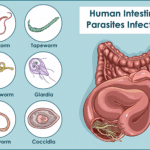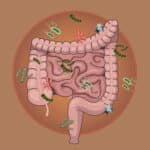Struggling on T4 Meds? Here’s What You Need to Know
Diagnosed with Hypothyroid? The Problem with T4-Only Therapy
If you’ve been diagnosed with hypothyroidism, chances are you’re taking a T4-only medication like Synthroid or Levothyroxine. These medications are the standard of care, but there’s a catch: T4, while important, isn’t the star of the thyroid hormone show. It’s more like the “backup dancer.” For T4 to work, your body must convert it into T3—the active thyroid hormone that regulates metabolism, energy, and overall cellular function.
This conversion process is not automatic and depends on multiple factors, including the health of your liver, gut, and overall inflammation levels. When these systems aren’t functioning optimally, T4-only therapy may fail to fully address your symptoms, even if your lab results look “normal.”
The Importance of T4-to-T3 Conversion
Thyroid hormones are produced in the thyroid gland as T4 (thyroxine) and T3 (triiodothyronine), with T4 making up about 80% of the output. However, T4 is largely inactive and needs to be converted into T3 to support metabolic processes.
Where Conversion Happens
- Liver: Approximately 60% of T4 is converted into T3 in the liver. This requires healthy detoxification pathways and adequate levels of key nutrients.
- Gut: Around 20% of T4 is converted into T3 in the gut by enzymes produced by gut bacteria. A healthy microbiome and low levels of inflammation are critical for this process.
- Other Tissues: The remaining 20% of T4 is converted in peripheral tissues like the kidneys, muscles, thyroid gland itself, and even the brain.
This widespread conversion process means that your thyroid health is intimately tied to the health of other organs and systems. If these systems are underperforming, you’re likely to feel the effects, regardless of how much T4 you take.
Why T3 Matters
T3 is the active thyroid hormone that directly influences your cells. It binds to receptors in your mitochondria to regulate energy production, metabolism, and cellular repair. Without sufficient T3, you’re left with persistent symptoms like fatigue, weight gain, brain fog, hair thinning, and cold intolerance.
When T4-to-T3 conversion is impaired, taking T4 alone might not improve these symptoms. Research shows that patients on T4-only therapy often report persistent hypothyroid symptoms despite “normal” TSH and T4 levels on lab tests. (Gullo et al., 2011)
Factors Affecting T4-to-T3 Conversion
1. Liver Function
The liver is responsible for 60% of the T4-to-T3 conversion in the body. Impaired liver function due to poor detoxification, fatty liver disease, or chronic alcohol use can reduce conversion efficiency. Supporting liver health with antioxidants like glutathione and nutrients like selenium can help optimize this process.
2. Gut Health
The gut contributes around 20% of T3 production via enzymes produced by beneficial bacteria. Dysbiosis, inflammation, or leaky gut can disrupt this process. Gut imbalances not only reduce T4-to-T3 conversion but also contribute to systemic inflammation, further worsening thyroid health.
- Short-Chain Fatty Acids (SCFAs): Beneficial gut bacteria produce SCFAs like butyrate, which have anti-inflammatory effects and support a healthy gut lining. These are critical for maintaining an environment conducive to T3 production. (Canfora et al., 2015)
3. Nutrient Deficiencies
Certain nutrients are essential for converting T4 to T3:
- Selenium: Acts as a cofactor for deiodinase enzymes, which convert T4 into T3. Selenium deficiency has been linked to impaired thyroid function and increased inflammation. (Rayman, 2012)
- Zinc: Supports enzymatic activity and thyroid hormone synthesis.
- Iodine: Critical for T4 production, but excess iodine can suppress thyroid function, especially in autoimmune thyroid conditions like Hashimoto’s.
Without adequate levels of these nutrients, the conversion process slows, leaving cells deprived of active T3.
The Problem with T4-Only Therapy
Focusing solely on T4 is like fixing a flat tire without inflating it. You might address one issue, but the system still can’t function as intended. Patients on T4-only therapy often remain in “symptom limbo,” experiencing persistent fatigue, brain fog, and weight gain despite their labs indicating normal TSH or T4 levels.
This discrepancy arises because TSH (thyroid-stimulating hormone) reflects how much T4 the thyroid gland is producing but doesn’t account for how well T4 is converted into T3 or how effectively T3 is being used by cells.
Studies suggest that combining T4 with T3 may provide better symptom relief for some patients. A randomized controlled trial found that patients who switched from T4-only therapy to a T4/T3 combination reported improved mood, energy, and overall quality of life. (Escobar-Morreale et al., 2005)
The Case for Glandular Thyroid Supplements
For those who don’t respond well to synthetic T4 medications, glandular thyroid supplements like Armour Thyroid or Nature-Throid offer an alternative. These natural thyroid products are derived from porcine thyroid glands and contain a mix of T4, T3, and smaller amounts of T1 and T2—providing a hormone profile closer to what your body naturally produces.
Benefits of Glandular Thyroid Supplements
- Balanced Hormones: The inclusion of both T4 and T3 addresses conversion issues directly, bypassing the need for perfect liver and gut function.
- Holistic Support: Patients often report better symptom relief with glandulars compared to T4-only medications, particularly in terms of energy, mood, and metabolic function.
Addressing Common Myths
Some doctors express concerns about the regulation and consistency of glandular thyroid supplements, but these fears are completely unfounded. High-quality products like Armour Thyroid undergo rigorous testing to ensure their T4 and T3 content matches the label.
In contrast, synthetic options like Synthroid often contain fillers like lactose, sucrose, talc, and artificial dyes. For patients sensitive to additives, these ingredients can exacerbate symptoms.
Supporting Your Thyroid Naturally
Whether you’re on T4-only therapy or exploring alternatives, addressing the underlying factors that influence thyroid hormone conversion is essential for optimal thyroid health.
- Support the Liver
- Detoxify with antioxidants like glutathione.
- Include selenium-rich foods like Brazil nuts and seafood.
- Heal the Gut
- Reduce inflammation with fermented foods, probiotics, and prebiotic fibers.
- Incorporate dietary fiber to support SCFA production.
- Consider Combination Therapy
- Talk to your doctor about adding T3 or switching to a T4/T3 combo medication.
- Explore glandular supplements as a natural alternative.
- Test Beyond TSH
- Ensure comprehensive testing, including free T3, reverse T3, and thyroid antibodies, to get a full picture of your thyroid health.
Conclusion
T4-only therapy has been the gold standard for decades, but it’s not the right solution for everyone. Since T4 must be converted into T3 to become active, patients with impaired liver or gut function—or other conversion issues—may not see full symptom relief on T4 alone.
By addressing underlying factors like gut health, liver function, and nutrient deficiencies, or by incorporating T3 or glandular thyroid options, patients can achieve better energy, mood, and overall wellness. Don’t settle for “normal” labs when you still feel far from your best—your thyroid health deserves a smarter approach.
By understanding the limitations of T4-only therapy and considering holistic, patient-centered approaches, you can unlock the potential for better thyroid health and improved quality of life.
- Gullo, D., et al. “Levothyroxine monotherapy cannot guarantee euthyroidism in all athyreotic patients.” PLoS One. 2011;6(8).
- Escobar-Morreale, H. F., et al. “Combination therapy with thyroxine plus triiodothyronine for hypothyroidism.” Annals of Internal Medicine. 2005;142(6):412–424.
- Rayman, M. P. “Selenium and human health.” The Lancet. 2012;379(9822):1256–1268.
- Canfora, E. E., et al. “Short-chain fatty acids in control of body weight and insulin sensitivity.” Nature Reviews Endocrinology. 2015;11(10):577–591.
- McAninch, E. A., and Bianco, A. C. “The history and future of treatment of hypothyroidism.” Annals of Internal Medicine. 2016;164(1):50–58.
Enjoying this content? Sign up for updates... It's FREE!

















